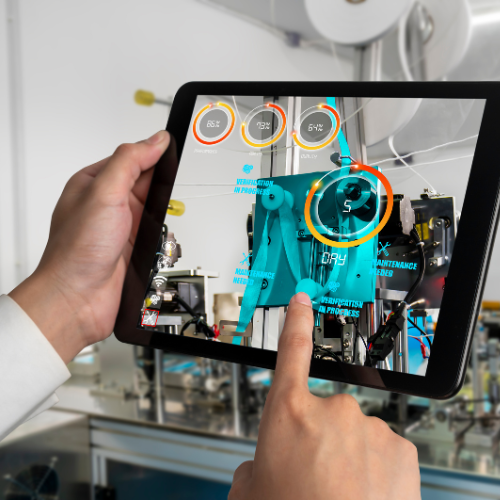
What do you mean by smart manufacturing?
Smart manufacturing refers to the use of advanced technologies, such as the Internet of Things (IoT), artificial intelligence (AI), big data analytics, robotics, and cloud computing, to enhance the efficiency, productivity, and flexibility of manufacturing processes. It involves the integration of these technologies into traditional manufacturing operations to create a highly responsive, adaptive, and interconnected production environment.
Key Features of Smart Manufacturing:
-
Real-Time Data Collection and Analysis:
- Use of sensors and IoT devices to collect data from machinery and production processes.
- Real-time analysis of this data to monitor performance, detect issues, and optimize operations.
-
Automation and Robotics:
- Implementation of automated systems and robotic technologies to perform repetitive or complex tasks with high precision and efficiency.
- Use of collaborative robots (cobots) that work alongside human workers.
-
Predictive Maintenance:
- Analyzing data from equipment to predict when maintenance is needed, reducing unexpected downtime and extending the lifespan of machinery.
- Proactive approach to maintenance, replacing parts before they fail.
-
Digital Twins:
- Creating virtual replicas of physical manufacturing systems to simulate, analyze, and optimize processes.
- Testing different scenarios and making improvements in the virtual environment before applying changes to the real world.
-
Supply Chain Integration:
- Connecting the entire supply chain digitally to ensure seamless communication and coordination between suppliers, manufacturers, and distributors.
- Enhancing visibility and transparency throughout the supply chain to respond quickly to changes in demand and supply.
-
Quality Control and Assurance:
- Using real-time data and advanced analytics to monitor product quality throughout the production process.
- Identifying and addressing quality issues promptly to minimize defects and rework.
-
Energy Management:
- Monitoring and optimizing energy usage in manufacturing processes to reduce costs and environmental impact.
- Implementing energy-efficient practices and technologies.
Benefits of Smart Manufacturing:
- Increased Efficiency: Streamlining operations and reducing waste through automation and data-driven decision-making.
- Improved Productivity: Enhancing production rates and reducing downtime with predictive maintenance and real-time monitoring.
- Enhanced Flexibility: Adapting quickly to changes in market demand and customizing products to meet specific customer requirements.
- Higher Quality: Ensuring consistent product quality and reducing defects through continuous monitoring and analysis.
- Cost Savings: Lowering operational costs by optimizing resource use, reducing waste, and improving maintenance practices.
- Sustainability: Reducing environmental impact by optimizing energy use and minimizing waste.
Examples of Smart Manufacturing Technologies:
- IoT Sensors: Devices that monitor and collect data on machinery performance, environmental conditions, and product quality.
- AI and Machine Learning: Algorithms that analyze data to provide insights, predict outcomes, and automate decision-making.
- Cloud Computing: Platforms that store and process large amounts of data, enabling collaboration and real-time access to information.
- Robotics: Automated systems and robots that perform tasks with precision and consistency.
- Additive Manufacturing: Technologies like 3D printing that enable rapid prototyping and customization of products.
In summary, smart manufacturing leverages cutting-edge technologies to create a more efficient, adaptable, and sustainable production environment, transforming traditional manufacturing into a highly connected and intelligent system.
Professionelle IoT løsninger
Har du brug for rådgivning eller installation af IoT løsninger til jeres virksomhed? Hos Sensor ECS er vi specialister i IoT løsninger og vi står klar på telefonen eller mailen til at hjælpe jer med at implementere jeres IoT løsning til jeres virksomhed.
Kontakt os eller læs mere om IoT løsninger samt IoT hardware her
Vi står altid til rådighed
Lad os hjælpe dig med at rådgive og installere den perfekte løsning til din virksomheds behov.
